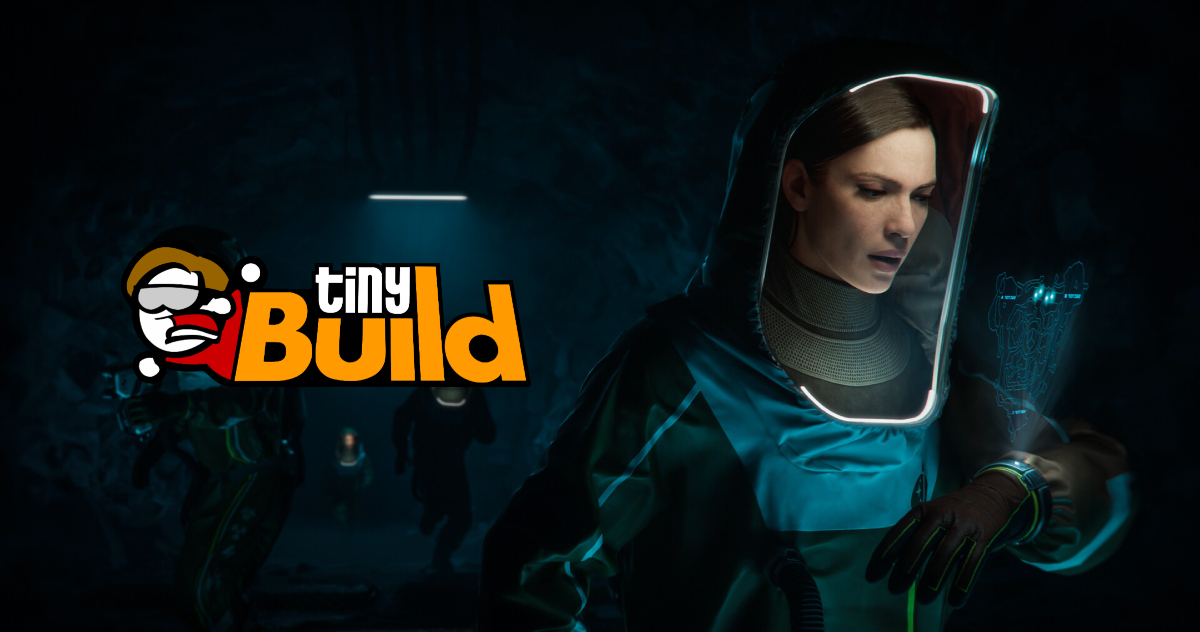tinyBuild shifts towards 1,000-hour games made without AAA budgets, as it reports $63.8 million in operating loss for 2023
tinyBuild has released its report for the fiscal year ended December 31, 2023. The company saw declines in all major business metrics, while sticking to its new long-term strategy aimed at improving its operations.

Level Zero: Extraction
Financial highlights
- According to its unaudited results, tinyBuild reached $44.7 million in revenue last year, down 29% compared to 2022. This is due to a drop in large contracts such as subscription deals, development partnerships, and exclusivity agreements.
- Versus Evil, whose staff was laid off last December, saw its revenue declined by over 60% year-over-year due to game delays.
- Back catalog sales accounted for 92% of total revenue, up from 80% in 2022. At the same time, tinyBuild’s own IPs contributed to 68% of revenue (77% in 2022).
- The company recorded an operating loss of $63.8 million, compared to a profit of $15.9 million in the previous year.
- This due to impairment charges ($36.2 million on development advances and $11.9 million on intangibles assets) and a $3.5 million one-off legal settlement with Versus Evil founder.
tinyBuild aims to make 1,000-hour games without AAA budgets
In his statement, tinyBuild CEO and founder Alex Nichiporchik opened up about “tectonic shifts in the industry,” citing the lack of accessible capital and funding, rising development costs, and new games struggling to reach audience in the new market environment.
“A good and fun game that would have performed really well only a few years back may just drown in the sea of new launches and even struggle to cover its costs,” Nichiporchik said. “For a game to get noticed now, you need to have a brand new idea, cool-looking graphics, top-notch technology, constant two-way communication with your audience and impeccable marketing strategy.”
He also believes that the “relationship between developer and publisher is even more important and is the only way to achieve a successful launch.”
To adapt its strategy to the changing environment, tinyBuild has been shifting to what it calls the “1,000-hour game.” According to Nichiporchik, these are titles such as Counter-Strike, World of Warcraft, and GTA Online, where users can spend several hours every day and play them for years.
One way to make these types of games is to have large teams produce enormous amounts of content on a regular basis. tinyBuild can’t afford to spend AAA budgets on its projects, so it had to come up with a different approach.
Nichiporchik said the company wants to focus on “emergent gameplay based on the interaction systems instead of content.” He cited games like DayZ, Rust, and Minecraft, where players can set goals for themselves and decide their own definition of wins. And the recent success of Helldivers 2 and Palworld only reaffirmed the company to invest in deeply replayable projects.
Multiplayer is another major element of successful live service titles, and tinyBuild have some experience in creating online experiences with games like Secret Neighbor, SpeedRunners, and Pandemic Express. However, the team struggled to produce content updates and rapidly scaling the projects to retain players.
tinyBuild is now betting on two titles in its pipeline that could potentially become hits. One of them is the upcoming medieval-set shooter with modern weapons Kingmakers (currently in the top 50 most wishlisted games on Steam) and multiplayer title Level Zero: Extraction (described by Nichiporchik as “Alien Isolation meets Escape from Tarkov”). The latter was re-announced as an extraction horror game in line with recent industry trends, and almost 100k players have already opted in to participate in a public playtest.
“We have proven that we don’t need a AAA budget to reach large audiences. We have plenty of exciting projects in the pipeline for 2024 and beyond,” Nichiporchik concluded. “This pipeline combined with the recent fundraise, leaves tinyBuild well positioned. I am as confident in the opportunity ahead and we all remain 100% committed to ensuring we capitalise on it.”